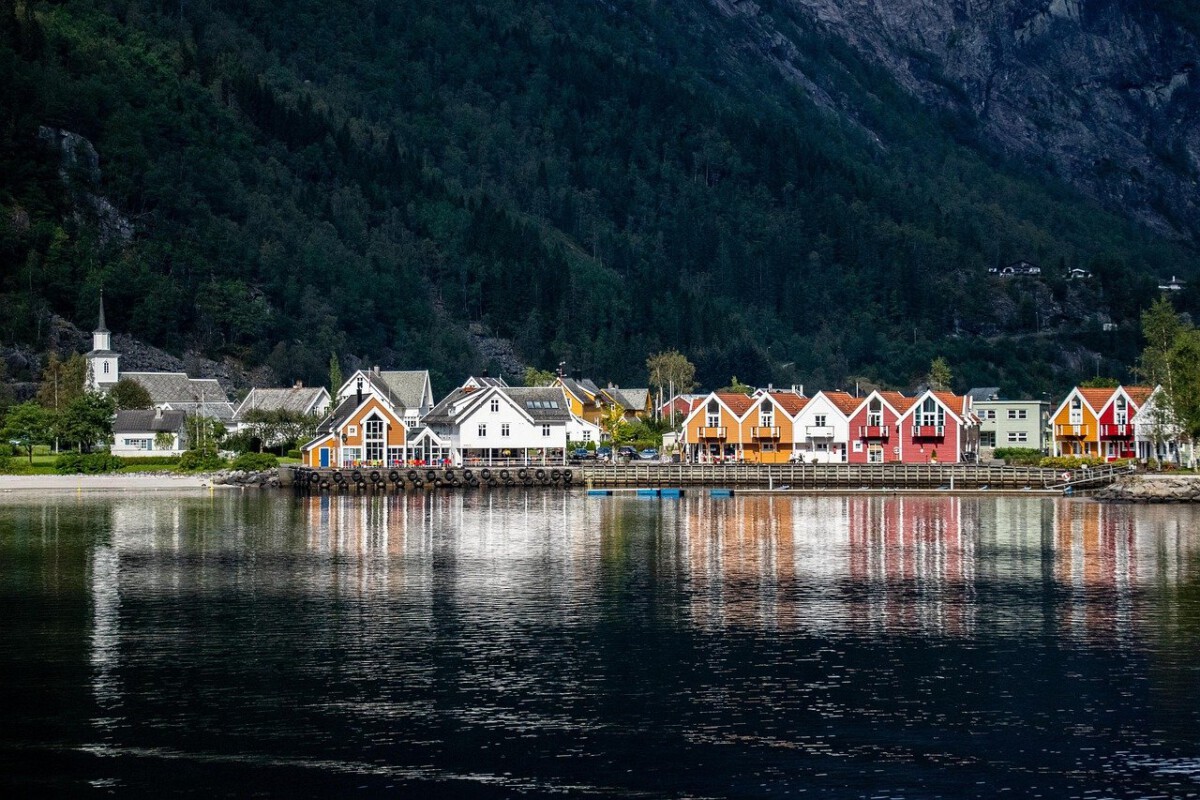Switzerland: The Epitome of Peace

Switzerland has become almost synonymous with peace and stability, a reputation built over centuries of neutrality and careful governance. According to the Global Peace Index 2024, Switzerland ranks in the top five most peaceful nations, thanks to its low crime rates and absence of armed conflict. The Swiss commitment to harmony is not just political but deeply cultural—social rules emphasize mutual respect and neighborliness. Walking through the tranquil streets of Zurich or along the shores of Lake Geneva, visitors often comment on the almost meditative calm that pervades daily life. The country’s efficient public services and world-class healthcare further contribute to a sense of security and well-being. Outdoor enthusiasts are spoiled for choice, from hiking in the Alps to sailing on crystal-clear lakes, all surrounded by scenery that feels untouched by chaos. For many travelers, Switzerland isn’t just a destination—it’s a breath of fresh air in a noisy world.
New Zealand: Nature’s Sanctuary

New Zealand is often described by visitors as the world’s most beautiful “backyard,” a place where nature and serenity walk hand in hand. The Global Peace Index consistently ranks New Zealand among the top peaceful countries, citing its low crime rates and strong social cohesion. The country’s unique blend of Maori and European cultures emphasizes respect for both people and the land, creating a welcoming and inclusive atmosphere for travelers. In 2024, tourism has rebounded, with visitors eager to explore the country’s lush rainforests, dramatic fjords, and tranquil beaches. New Zealand’s government has doubled down on eco-friendly policies, ensuring its natural treasures are preserved for future generations. Locals are famously friendly, often going out of their way to help lost travelers or share local secrets. Whether you’re kayaking on Lake Wakatipu or simply enjoying a quiet evening in Queenstown, New Zealand’s calm is almost contagious.
Iceland: A Land of Tranquility

Iceland’s reputation as a sanctuary of peace is as unshakable as its volcanic landscape. Topping the Global Peace Index year after year, Iceland boasts almost non-existent violent crime and no standing military. Its small population, spread across wide-open spaces, means you’re more likely to meet a puffin than a pickpocket. In 2025, tourism in Iceland is thriving, with thousands flocking to experience the Northern Lights, soak in geothermal hot springs, and hike among glaciers. The country’s strong sense of community and high level of social trust make it feel remarkably safe, even for solo travelers. Icelanders are proud of their Viking heritage, but modern life here is defined by equality and calm. Local traditions like cozying up in a geothermal pool or listening to live folk music add to the atmosphere of relaxation. For anyone seeking genuine tranquility, Iceland offers landscapes and lifestyles that soothe the soul.
Norway: The Land of Fjords and Calm

Norway’s breathtaking natural scenery is matched only by the serenity of its society. Ranking among the top ten on the Global Peace Index, Norway enjoys low crime rates and a robust, transparent political system. In 2024, tourism is flourishing, with travelers drawn to the country’s legendary fjords, midnight sun, and pristine wilderness. The Norwegian concept of “friluftsliv” (open-air living) encourages people to immerse themselves in nature, which many experts say is a key reason for the country’s collective sense of peace. Social equality and a strong welfare system support a harmonious, inclusive society where people look out for one another. Visitors often remark on the friendliness of locals, whether in bustling Oslo or remote fishing villages. Norway’s dedication to sustainability ensures that its tranquil landscapes remain unspoiled, offering visitors a sanctuary of calm in every season.
Canada: A Mosaic of Peace

Canada’s vast expanses and mosaic of cultures create a unique sense of calm that’s hard to find elsewhere. The Global Peace Index places Canada near the top, citing its low levels of violent crime and robust democratic institutions. In 2025, the country is experiencing a tourism boom, with visitors flocking to its national parks, tranquil lakes, and multicultural cities. Canadians are known for their politeness and welcoming attitude, which immediately puts travelers at ease. From the quiet beauty of Banff’s mountain lakes to the cultural vibrancy of Toronto’s neighborhoods, Canada offers a diverse range of peaceful experiences. The country’s commitment to multiculturalism is more than a policy—it’s a lived reality, fostering a sense of belonging and safety for all. Outdoor adventures, from canoeing to stargazing, are complemented by a thriving arts scene and world-class cuisine, making Canada a true haven for the calm-seeker.
Finland: A Model of Stability

Finland has become a poster child for both happiness and peace, regularly ranking high on global indexes measuring both. The country’s stability is rooted in a strong education system, a comprehensive social welfare network, and a deep respect for individual rights. In 2024, Finland’s tourism sector is gaining momentum, especially among travelers searching for quietude in its sprawling forests and tranquil lakes. The national obsession with saunas is more than just relaxation—it’s a vital part of Finnish culture that encourages mindfulness and social connection. Finns’ deep connection to nature is reflected in their everyday lives, whether foraging for berries or cross-country skiing under the Northern Lights. The general atmosphere is one of trust and mutual respect, with very low levels of corruption or violence. Visitors often leave Finland feeling rejuvenated, carrying a piece of its unique calm back home.
Japan: A Blend of Tradition and Tranquility

Japan offers a rare blend of modern efficiency and ancient serenity, making it an irresistible destination for peace-seekers. The Global Peace Index acknowledges Japan’s low crime rates and stable society, which are underpinned by centuries-old traditions of respect and harmony. In 2025, the country’s tourism is bouncing back, with travelers drawn to the tranquil gardens of Kyoto, the quiet temples of Nara, and the meditative landscapes of rural Hokkaido. Japanese culture emphasizes mindfulness, from the artful preparation of tea to the annual celebration of cherry blossom season. Visitors experience this tranquility firsthand, whether participating in a tea ceremony or soaking in an onsen hot spring. The Japanese value of “wa” (harmony) permeates daily life, fostering a sense of order and respect that is palpable. Travelers often describe Japan as a place where the stress of the outside world simply melts away.
Syria: A Country in Crisis

Syria’s modern history has been defined by conflict and heartbreak. Over a decade of civil war has left millions displaced and much of its cultural heritage in ruins. The United Nations reported in 2024 that more than 14 million Syrians now require humanitarian assistance, a staggering figure that underscores the scale of the crisis. Iconic cities like Aleppo and Damascus, once bustling centers of culture, now bear scars from years of fighting. The political situation remains deeply unstable, with multiple factions vying for control and peace talks struggling to gain traction. Humanitarian organizations face daily challenges in delivering aid, while civilians live under constant threat. For travelers, Syria is considered extremely dangerous, and most governments strongly advise against visiting due to ongoing violence and instability.
Afghanistan: A Nation in Turmoil

Afghanistan stands as one of the most volatile countries in the world, its history marked by conflict and uncertainty. The Taliban’s return to power has deepened the humanitarian crisis, with widespread reports of food insecurity and reduced access to basic services. In 2024, Afghanistan continues to rank at the bottom of the Global Peace Index, reflecting persistent violence and political chaos. Human rights organizations have raised urgent alarms, particularly regarding the treatment of women and girls, many of whom have been barred from education and work. The country’s infrastructure remains fragile, with many areas inaccessible due to ongoing conflict. For travelers, Afghanistan is considered off-limits, with safety concerns and instability making visits nearly impossible. The daily reality for millions is a struggle for survival amid insecurity and uncertainty.
Yemen: A Humanitarian Catastrophe

Yemen’s situation has reached catastrophic levels, with the country now recognized as one of the world’s worst humanitarian disasters. Ongoing civil war has driven widespread famine, malnutrition, and disease, leaving millions in desperate need. According to the United Nations, more than 24 million Yemenis require humanitarian aid, a figure that includes countless children at risk of starvation. The Global Peace Index lists Yemen at the very bottom, reflecting relentless conflict and the collapse of basic services. Aid organizations struggle to reach those most in need due to blockades and continued fighting. For travelers, Yemen is considered extremely dangerous, with travel advisories in place due to the risk of violence. The international community continues to call for peace, but the situation remains dire as the country endures relentless turmoil.






